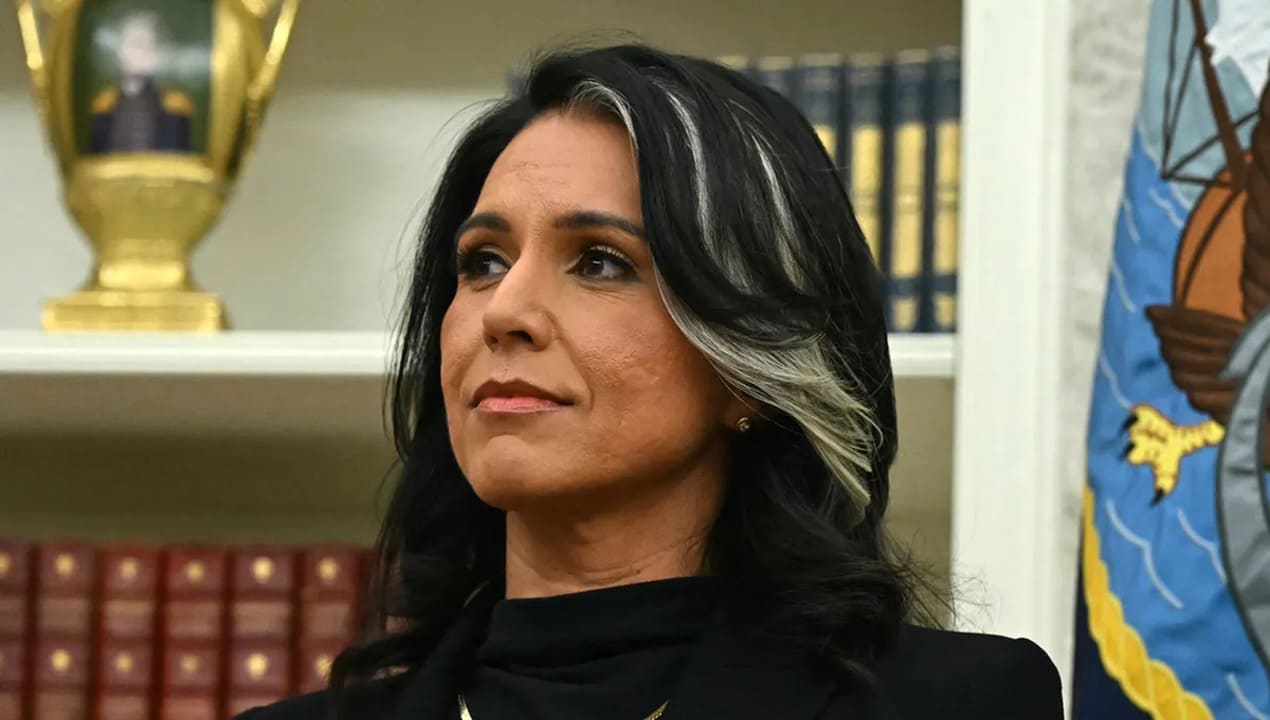
Independent Report – U.S. Director of National Intelligence Tulsi Gabbard announced a significant restructuring of her office on Wednesday. Marking the first major overhaul since the agency’s establishment. The plan includes a reduction of more than 40% of personnel by October 1. Aiming to save over $700 million annually. This move represents one of the largest personnel cuts in the history of the Office of the Director of National Intelligence (ODNI). And also underscores Gabbard’s intention to streamline the agency’s operations.
Among the changes, the Foreign Malign Influence Center. Which monitors attempts by foreign actors to sway the American public, will be eliminated. According to a fact sheet from ODNI, other U.S. intelligence units already perform this function, making the center’s work redundant. Tulsi Gabbard emphasized that the restructuring would allow the office to focus on its primary responsibilities while reducing overlap with other agencies.
The announcement comes in a context of broader efforts by the Trump administration to reduce federal bureaucracy. Over the past several years, the administration has pursued extensive cuts across various government agencies, citing inefficiency and unnecessary spending. Gabbard’s plan fits within this wider initiative to streamline federal operations while maintaining core capabilities.
In her statement, Gabbard criticized former intelligence officials for allegedly contributing to what she described as a politicized assessment of Russian interference in U.S. elections. She claimed that the intelligence community produced a narrative suggesting that Russia aimed to influence the 2016 presidential election in favor of Donald Trump. These assessments, she argues, were manipulated for political purposes rather than grounded in objective analysis.
Also Read : Political Ambitions Delayed by Musk, Focus on Business Strategy
The ODNI played a central role in compiling intelligence reports related to foreign interference. Which were later confirmed by bipartisan Senate intelligence committee investigations and a review commissioned by CIA Director John Ratcliffe. The office also oversaw evaluations of Russia’s attempts to influence the 2020 and 2024 elections. While Russia denies these allegations, U.S. intelligence assessments have maintained that online influence operations were conducted with the aim of affecting election outcomes.
The ODNI was created in response to the September 11, 2001. Attacks to coordinate the work of the 18 agencies that make up the U.S. intelligence community. Over the past two decades, the office has grown in size and scope. But Gabbard argues that it has become inefficient and susceptible to misuse. She highlighted instances of unauthorized leaks, abuse of power. And also the politicization of intelligence, which she believes have undermined public trust in the office.
According to Gabbard, the overhaul is necessary to refocus ODNI on its essential mission: delivering objective, accurate, and timely intelligence to the president and policymakers. By reducing bureaucratic layers and redundant units, the office can concentrate on analyzing threats and providing actionable insights.
When Gabbard assumed leadership, ODNI employed approximately 1,800 staff members. Since then, she has already reduced the workforce by around 25%. The new restructuring will further cut staffing by over 40%, translating into an estimated annual savings of $700 million starting in fiscal year 2025. Which ends on October 1.
The ODNI fact sheet also highlighted other eliminated units, including those responsible for tracking weapons of mass destruction and cyber threats. Gabbard explained that these responsibilities are already managed by other intelligence units, making the dedicated groups within ODNI redundant. Additionally, a team responsible for producing long-range forecasts of global trends will be disbanded. Reflecting Gabbard’s focus on prioritizing immediate and actionable intelligence rather than long-term predictions.
Overall, Gabbard’s restructuring represents a significant shift in how ODNI operates. By reducing personnel, eliminating redundant units, and emphasizing core responsibilities, she aims to create a more efficient and focused intelligence agency. The changes are expected to save taxpayer money, streamline operations, and ensure that the office remains accountable while fulfilling its mission of providing objective intelligence to U.S. leaders.
Also Read : Israel Deploys 60,000 Reservists to Take Over Gaza